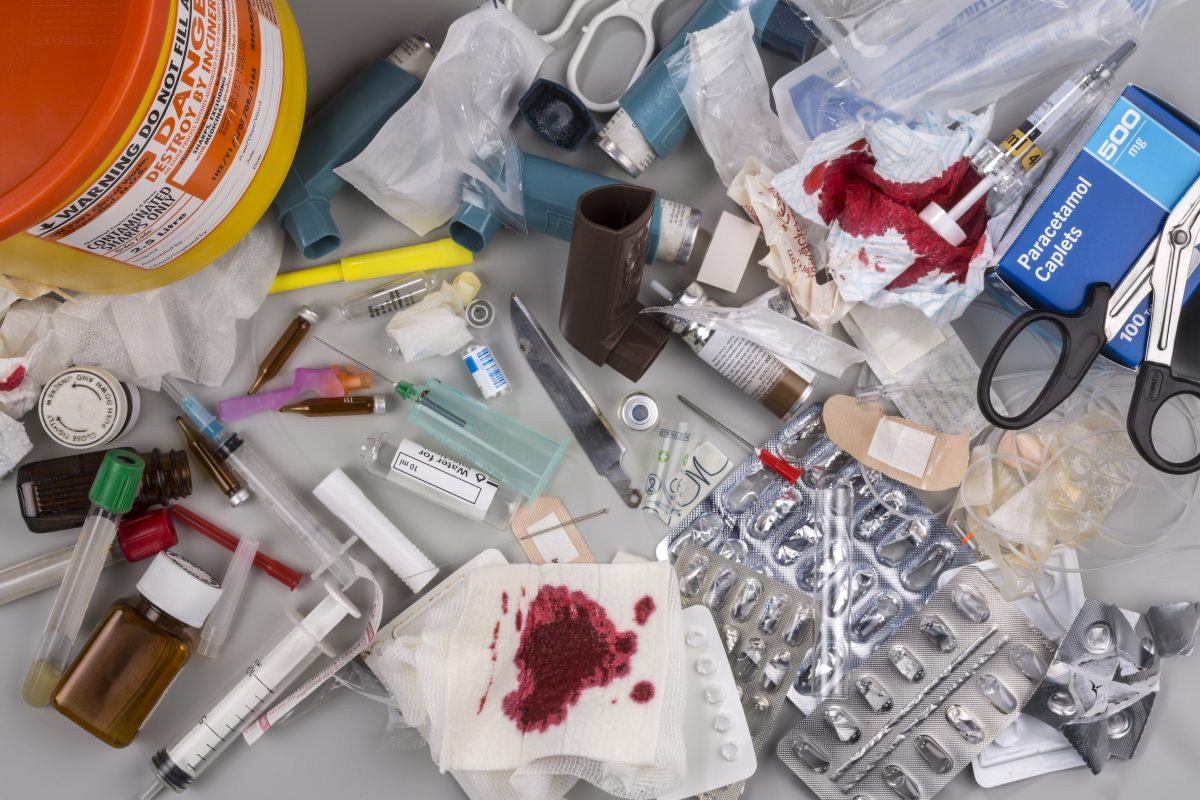 The COVID-19 pandemic poses a challenge for those tasked with the handling of biomedical waste.
The COVID-19 pandemic poses a challenge for those tasked with the handling of biomedical waste.
As The Times of India reported last month, “COVID-19 presented a unique challenge before the country where it has currently to deal with unestimated [sic] amount of biomedical waste…exclusively from dedicated COVID hospitals, quarantine centres and home quarantine facilities in cities/towns and district/block headquarters.” With lockdown rules being relaxed in many parts of the country, the waste issue has been amplified. Indians returning to work are likely to be generating increased volumes of biomedical waste, due to the safety measures being taken to curb the spread of COVID-19.
“Handling biomedical refuse from offices is a new segment for us – and it is expected to grow significantly in the coming months,” said Masood Mallick, joint managing director at leading waste management company Ramky Enviro Engineers, quoted in The Economic Times. He noted that “we’re gearing up to meet demand from corporates” as offices are now handling items classed as biomedical waste items such as personal protective equipment (PPE), which they are being instructed to hand over to biomedical waste handlers.
“Every consumable used for COVID-19 checks, as well as those worn for protection in offices and discarded, would go into a yellow bin,” Mallick explained of the new waste segregation rules. “Medical waste handlers would collect the waste from offices and dispose [of it].”
In March, the Central Pollution Control Board issued guidelines for the handling of biomedical waste generated in diagnostics, testing, and treatment as it relates to COVID-19. “Collect and store biomedical waste separately prior to handing over the same (to) Common Bio-medical Waste Treatment Facility (CBWTF),” the guidelines said. “Use a dedicated collection bin labelled as COVID-19 to store COVID-19 waste and keep separately in a temporary storage room prior to handing over to the authorised staff of the CBWTF. Biomedical waste collected in such isolation wards can also be lifted directly from [the] ward into [the] CBWTF collection van.” Meanwhile, biomedical waste handlers report facing issues due to understaffing amidst a heightened workload.
The issue of improper handling of medical waste predates the COVID-19 crisis. As previously reported by Health Issues India, “in the 2002-04 period, it was found that 82 percent of primary healthcare facilities, 62 percent of secondary healthcare facilities, and 54 percent of tertiary healthcare facilities lacked a “credible” system of biomedical waste management. In the years since the situation has improved. However, in 2016, 37 tonnes per day of medical waste continued to go untreated.”
The pandemic underscores the need for proper handling of medical waste, for the purposes of public safety and sanitation. The relevant authorities must take action against offenders and ensure sufficient staffing of the sanitation workforce to guarantee that the public health crisis unfolding is not exacerbated by a sanitation one.

